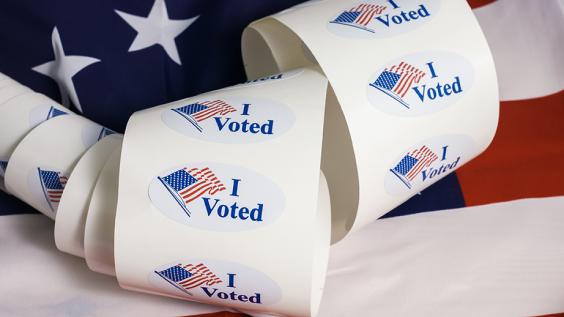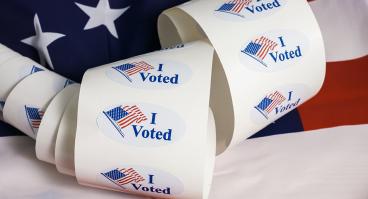The Texas Voter ID Law and the 2016 Election: A Study of Harris County and Congressional District 23

Table of Contents
Author(s)
Mark P. Jones
Fellow in Political Science | Joseph D. Jamail Chair in Latin American StudiesRenee Cross
Senior Director, Hobby School of Public Affairs at University of HoustonJim Granato
University of Houston Hobby School of Public AffairsExecutive Summary
In 2016, voter photo ID regulations were once again in force in Texas. This study examines the impact of those regulations on voter participation in the state’s two highest profile battleground jurisdictions during the 2016 electoral cycle: Harris County and Congressional District 23 (CD-23). It also explores familiarity among non- voters with the 2016 photo ID rules, rules that have served as the foundation for revised photo ID legislation presently being considered in the Texas Legislature during the 85th legislative session (e.g., Senate Bill 5 and House Bill 2481).
The data employed in the study are drawn from two separate representative surveys of registered voters who were eligible to participate in the November 8, 2016 election but did not cast a ballot (i.e., non-voters). The surveys were conducted in English and Spanish in February and March of 2017, with 424 and 395 interviews completed in Harris County and CD-23 respectively.
Virtually all registered voters in Harris County and CD-23 who did not participate in the November 2016 election possessed one of the state approved forms of photo ID needed to cast a vote in person. All together, 97.4% and 97.8% of non-voters in Harris County and CD-23 possessed an unexpired state-approved photo ID, with these proportions rising to 98.5% and 97.9% when photo IDs that had expired within the previous four years were considered (in 2016 IDs that had expired within four years of the voting date could be used to vote in person). The most common photo ID held by non-voters was a Texas driver license, with 82.9% and 84.1% of Harris County and CD-23 non-voters possessing an unexpired Texas driver license. Among those between the ages of 18 and 25 (who in theory would be the principal beneficiaries of an expansion of the forms of state approved ID to include public college and university IDs), 97.4% and 97.5% of Harris County and CD-23 non-voters possessed an unexpired state approved photo ID, rising to 100% in Harris County (and remaining at 97.5% in CD-23) when expired IDs were considered.
Approximately three-fifths of non-voters in Harris County (58.8%) and CD-23 (63.6%) agreed that one of the reasons they did not vote was because they didn’t like the candidates or the issues, making it the reason for not voting with the highest level of agreement in both locales. At the other end of the continuum, approximately one in seven non-voters in Harris County (16.5%) and CD-23 (14.8%) signaled a lack of possession of a state approved photo ID as one of the reasons they did not participate in the 2016 election. Among this sub-set of non-voters whose nonparticipation was attributed at least in part to the photo ID requirements, approximately two-thirds of those with a preference would have voted for the Democratic candidates in the Harris County District Attorney and Sheriff races and in the CD-23 race. This suggests that had these individuals participated, the Democratic candidates in the former two contests would have enjoyed even larger margins of victory and the Democratic candidate in CD-23, Pete Gallego, would have defeated his Republican rival, Will Hurd, instead of losing to Hurd by 1.3% of the vote.
However, when pressed to give the principal reason why they did not cast a ballot in 2016, only 1.5% and 0.5% of non-voters in Harris County and CD-23 identified a lack of a state-approved photo ID as the principal reason they did not vote. Among this handful of non-voters, 86% actually possessed an approved form of photo ID, while 14% did not. While the photo ID law at least partially discouraged some people from voting, an actual lack of a state approved photo ID kept virtually no one (only one non-voter among the 819 surveyed) from turning out to vote in 2016.
Only one in five non-voters in Harris County (21.1%) and CD-23 (17.9%) could accurately identify the photo ID rules in effect for the 2016 election. Three in five non-voters in both jurisdictions (58.4% and 59.7%) incorrectly believed that all voters were required to provide a state approved form of photo ID to vote in person, unaware that voters who did not possess a photo ID could still vote if they signed an affidavit and provided one of several supporting documents. In both Harris County and CD-23, Latino non-voters (15.1% and 14.8%) were significantly less likely than Anglo non-voters (24.3% and 27.6%) and, in Harris County, than African American non-voters (27.9%), to accurately understand the photo ID rules governing the 2016 election. Latino non-voters in both locales also were significantly more likely than Anglo (and in Harris County, African American) non-voters to believe that the 2016 photo ID rules were more restrictive than they actually were.
Three out of four Harris County (74.2%) and CD-23 (75.1%) non-voters incorrectly believed that only an unexpired Texas driver license qualified as a state approved form of photo ID to vote in person in 2016. A mere 14.4% and 13.8% of non-voters in these two jurisdictions were aware that in 2016 an expired Texas driver license could also be used as long as it had expired within the past four years. In Harris County, Latinos (82.4%) were significantly more likely than Anglos (72.3%) to believe they could only use an unexpired Texas driver license as a form of photo ID to vote in person in 2016. In CD-23 there were however no significant differences between Latino (75.4%) and Anglo (76.8%) non-voters.
The survey data clearly indicate that non-voters in Harris County and CD-23 did not have a good understanding of the voter photo ID rules in force for the 2016 election. Only one in five non-voters were aware that it was possible for registered voters who did not possess one of the seven state approved forms of photo ID to still vote in person by signing an affidavit and providing one of many easily obtainable supporting documents. And, only one in seven non-voters knew that an expired (within four years) Texas driver license qualified as a state approved photo ID for the purposes of voting in person in 2016.
The uninformed and misinformed state of the Texas non-voting electorate in 2016 highlights the need for a more robust state-sponsored voter education campaign to increase public knowledge regarding the photo ID rules that will be in effect in 2018 when Texans vote in races to choose elected officials for positions ranging from U.S. senator and governor to county judge and constable.
Read the full study at University of Houston Hobby School of Public Affairs.
